HB 1062 would prohibit the use of eminent domain by private entities to build an overhead merchant HVDC electric transmission lines which does not provide for the erection of electric substations at intervals of less than fifty miles. It's just that specific. It won't interfere with AC transmission, buried transmission of any kind, or any other kind of linear infrastructure. The bill has received wide support and sailed through committee hearings. It is supported by Speaker of the House Elijah Haahr, who penned this op ed last week.
That's not to say the bill has no opposition, however it is weak and based on exaggeration and misinformation, such as the exaggerated claims of "tax benefits" from Grain Belt Express. Exaggerated promises of future tax revenues rarely come true. Any revenues realized are usually much less than figures touted during the approval process, and must be balanced against tax revenue losses experienced by the counties. Lowered property values caused by new transmission produce a drop in assessments and property tax collected. In addition, new transmission affects farm yields and profits, lowering taxes paid by local business. This impact also spreads to agricultural support businesses. During construction, the transmission line would produce costs for the counties, such as traffic control, security, and road maintenance/repair. Another thing to consider is the very nature of utility taxes, which are controlled by the state. The state may skim off a portion of the taxes to pay for state programs or to distribute to other counties. The actual amount received by individual counties will be much less, and when lowered taxes and additional costs are factored in, may produce very little revenue for affected counties, or result in a net loss. The arguments against HB 1062 are increasingly facile and shallow.
The supposed "significant" savings on electricity prices could, at most, produce a 3% or 4% savings. How much would that really be on your electric bill, if you take service from one of the municipalities who decided to support Grain Belt Express and throw their rural neighbors under the bus for their own financial benefit? Just a couple bucks... not enough to truly make any difference in a consumer's financial situation.
Granting eminent domain authority to a private entity so that it may take private property cheaply in order to increase its own profits is the start of a very slippery slope. How soon we've forgotten the lessons of Kelo v. City of New London, which sparked national attention on the issue of eminent domain for corporate gain. Show me, Missouri, that you support private property rights by attending tomorrow's rally!
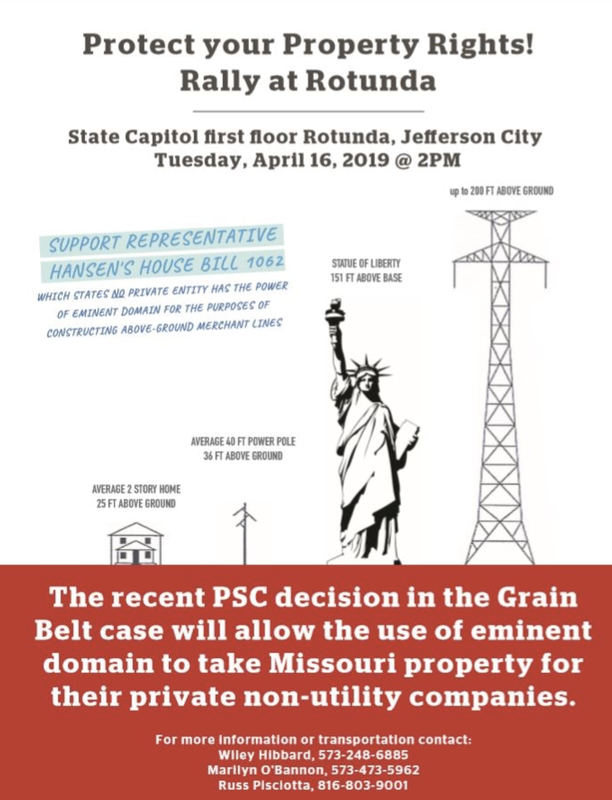

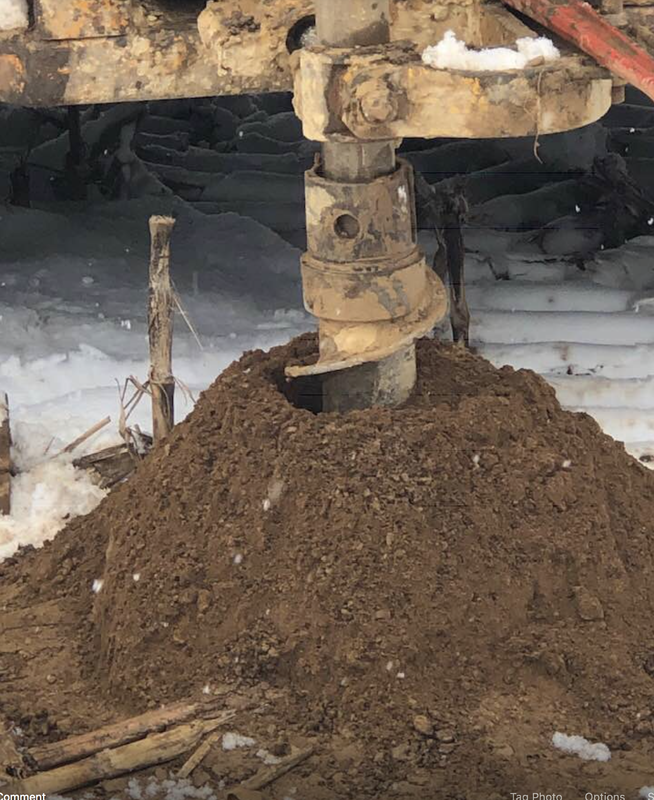
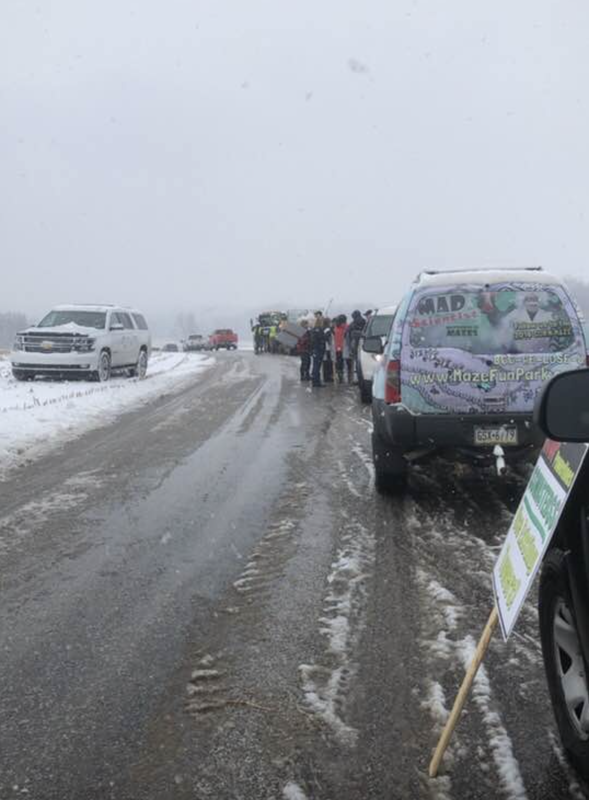
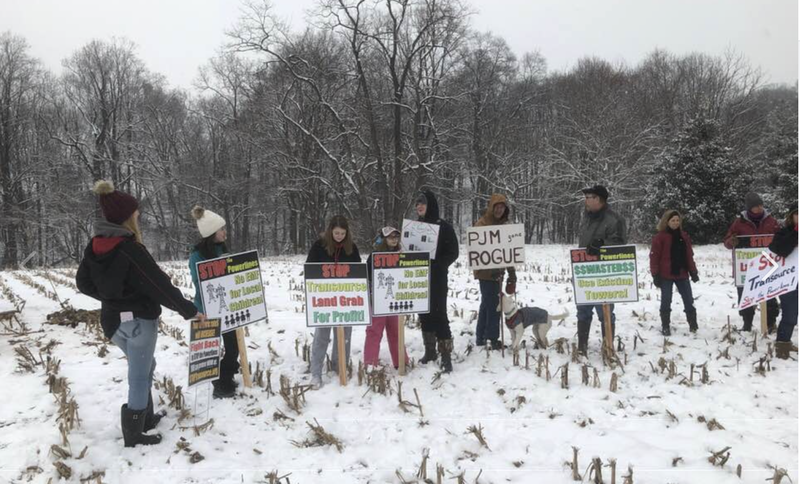
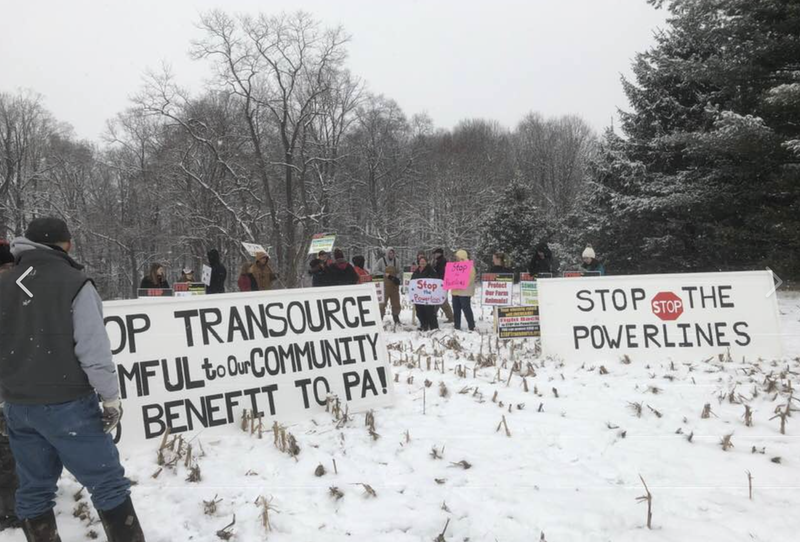
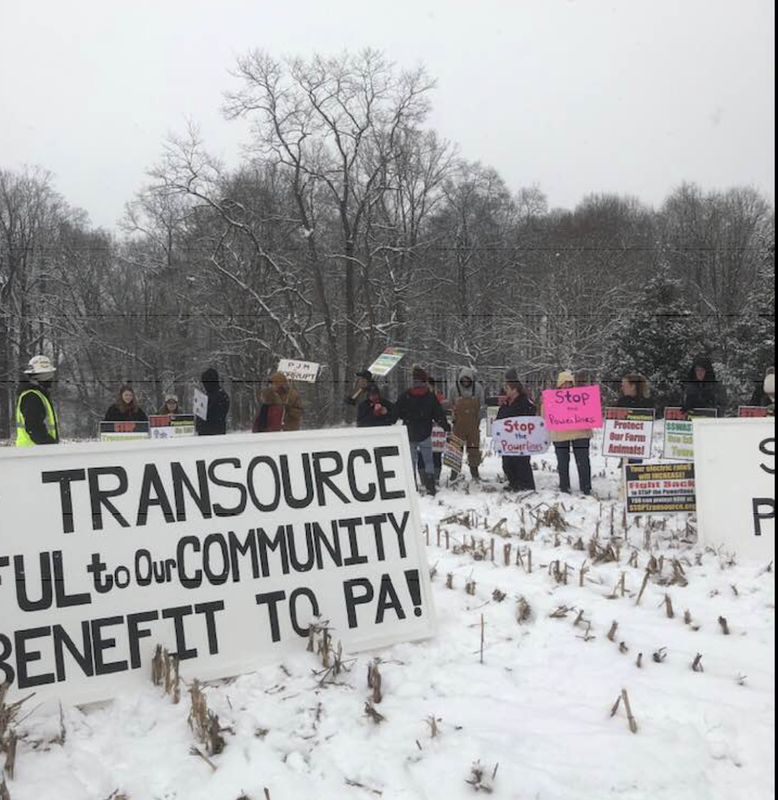
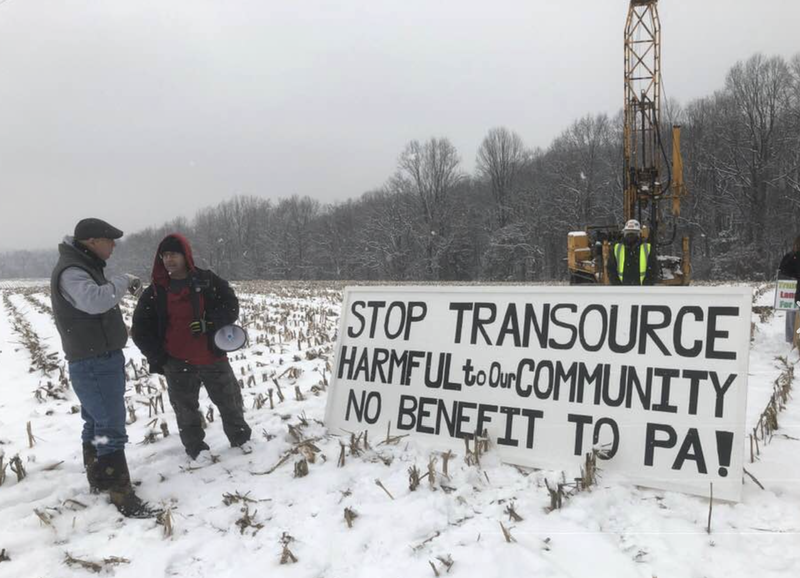
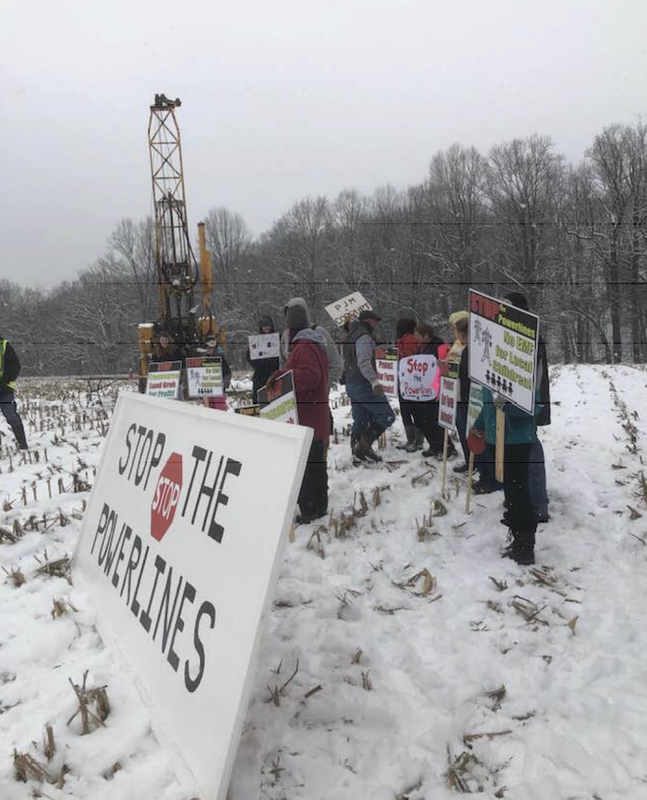
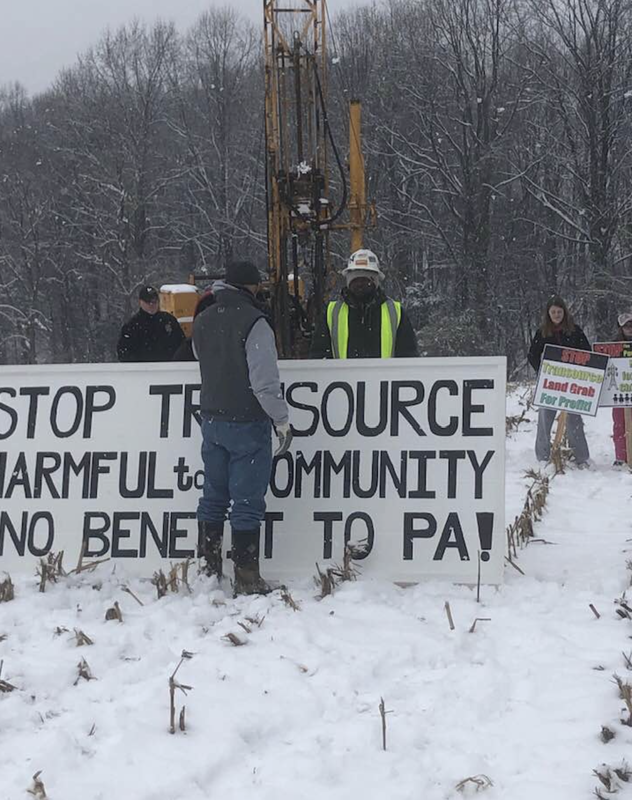

 RSS Feed
RSS Feed